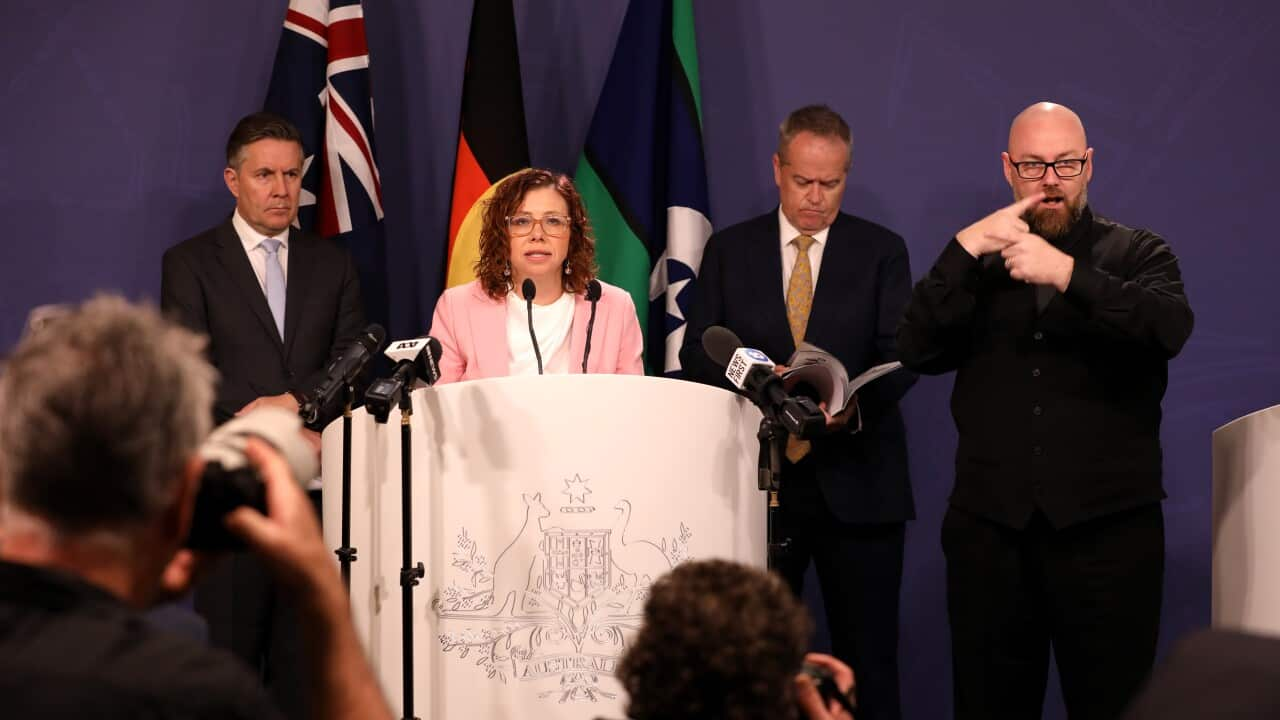Key Points
- The federal government has responded to the recommendations in Disability Royal Commission Report.
- Thirteen of the 172 recommendations under the federal government’s remit were accepted in full.
- The response was criticised in a joint statement endorsed by twelve Disability Representative Organisations.
On Wednesday, the federal government released its response to the Disability Royal Commission Report. Here are the key takeaways.
Thirteen recommendations were accepted in full

Of the 222 recommendations handed down in the report, 172 were addressed in the federal government response. Source: SBS News / Lilian Cao
Of those 222 recommendations, 172 are considered under the remit of the federal government and were addressed in Wednesday’s response. The remaining 50 are the responsibility of the states of the territories.
Of the 172 recommendations responded to by the government, just 13 were accepted in full.

‘Accept’ means the Australian government accepts or supports the recommendation in full. A further 117 recommendations were accepted in principle. Source: SBS News / Lilian Cao
Those accepted are mostly small legislative suggestions, with many already underway.
When asked why the government stopped short of fully implementing certain recommendations, Social Services Minister Amanda Rishworth told reporters while the general policy has been agreed with, the prescriptive nature of some of the recommendations means further work is needed to appropriately implement them.
Noted, or in need of further consideration.
Recommendations to improve disability inclusion and bring an end to harmful segregation included calls to phase out segregated employment by 2034 and group homes within 15 years were listed as needing further consideration.

Note: The report also clarifies that “segregation does not occur in spaces where people with disability choose to come together, share culture and values, seek support for their individual needs, or are encouraged and supported to engage with the broader community. These are the same choices available to people without disability”. Source: SBS News
The Greens’ disability rights spokesperson, senator Jordon Steele-John says the government’s response is insulting to the disability community.
“Only 13 out of 222, or less than 6 per cent, of the recommendations were accepted. Disabled people and our families gave so much to this commission, and this government has given so little in return.”

Greens senator Jordon Steele-John said people with disability and their families “gave so much” to the commission and that the government had “given so little in return”. Source: AAP / Lukas Coch
In response to reporters’ questions about the lack of commitment to ending cycles of segregation, Amanda Rishworth said: “The disability royal commissioners were divided on those recommendations.”
Rishworth said the government response has addressed other recommendations related to inclusive education and is taking further consideration into the more divisive concerns.
Also listed as needing further consideration were the co-design of a new complaints system and a new scheme that would allow employees with disability to be paid at least half the minimum wage.
Where’s the money going?
The funding response focuses on improving job pathways as part of a broad $371 million package.

The government has pledged $369 million towards this initial response. Source: SBS News / Lilian Cao
The most significant portion of the funding will go toward designing a specialist disability program announced in the May budget.
This is designed to assist those with disabilities prepare for, find, and maintain suitable employment.
‘Devastated, disappointed and completely caught off guard’

People with Disability Australia president Marayke Jonkers (centre) said the government’s response had “devastated” its members. Source: AAP / Darren England
Disability advocacy groups say the government response is devastating.
Inclusion Australia says the response was underwhelming, calling it a frustrating day for Australians with intellectual disabilities.
